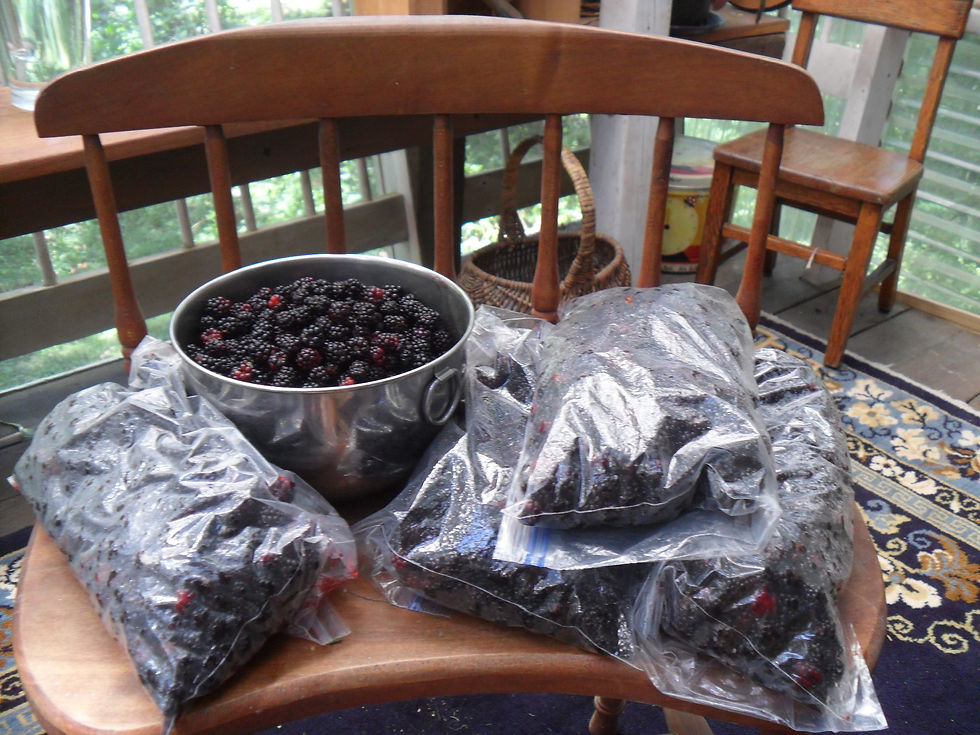Story developed as part of a Climate Justice Challenge Submission in 2018
---------
When the routine pregnancy test came back positive, my mother stood up in the oncologist’s office. "I'll come back in nine months." She asked him to postpone surgery to remove the lump in her throat.
Days after I was born, she went into first one and then two surgeries and was given radioactive iodine for thyroid cancer. In those first weeks, she was scared to hold me for fear of residual radiation. While not being one of the more malignant types of cancer, thyroid cancer is still cancer. As an only child to a single mother, I was left with babysitters or my aunts while my mother went in and out of doctor's appointments. Repeat scares brought more uncertainty.
Now as a working adult, I see reflections of her unwavering response to her sickness - and recovery - on who I am and how I see the world.

Life is precious.
"I didn't know how much time I'd have with you," she's told me. For recuperating mother and child, each day was a gift.
In the time she had, my mother wanted to share with me all she could. As a daughter of the Missouri Ozarks, she knew best about the rivers and forests of the heartland. On camping trips, canoe rides, and bird walks across our state, she instilled in me an appreciation for the rich beauty of our home. She showed me the red fox and indigo bunting - Missouri animals in our backyard - and explained to me how each creature has a job in the complex workings of our planet and ecosystems.
Acknowledgment for the great worth of life came in the form of planting a native flower garden for Missouri pollinators in our yard, joining Stream Team Cleanups, and using our bikes as often as possible. Respecting and caring for the natural world is embodying gratitude for the miracle of life.

Health is a priority.
Just what my mother did not have, she tried to give me: health. "The best thing you can invest in is your health," my mother told me.
Our health relies on fresh food, clean air, and good water. While we addressed some of these factors in our home, others depend on collective action and good policies at the city, state, and national levels.
The little garden in our front yard grew spinach, tomatoes, basil, kale, asparagus, squash, zucchini, potatoes, strawberries, and cherries. When we could, we bought organic and local. My mother taught me to value the wealth of a Missouri harvest and the hard work of the farmers who feed us all.

Water and air, unfortunately, can't be fully addressed even by the hard work of a determined mother.
While good water surely depends on adequate water treatment, even more importantly, it depends on good watersheds. Our backyard bordered the urban Hinkson Creek, a primary watershed in Columbia. When it rains, gasoline and toxins wash off of streets and parking into the creek, and if it floods, sewage runs in as well. Once, a notice went around to our neighborhood telling families to stop their children from playing in the creek for fear of infection. All that runoff harms the creek ecosystem and then heads down to the treatment plant and returns to us somewhere down the line.
Securing water of quality and quantity, and thereby protecting our health, means improving the management of our natural water bodies.
Growing up with asthma meant I had fragile lungs, and good air quality was an even larger concern for my mother. To make matters worse, we lived in the Third Ward, downwind from the coal power plant. Coal is the dirtiest of fossil fuels, and its burning is connected to higher rates of asthma, cancer, and heart and lung issues. Often those downstream of these power plants are people of color and those from marginalized and low-income communities. My mother bought air filters and did what she could to ensure, at least in the house, that my air would be safe to breathe.
Live simply.
"Live below your means," my mother reminded me.
We washed and reused plastic bags and repaired our vacuums, air conditioners, and clothing rather than throw them out when they were broken or torn. By changing light bulbs, improving insulation in the walls, and checking for air leaks in windows, we improved our home's energy efficiency and cut back greatly on our energy bills. At dinner, wasting was a high sin: you ate everything on your plate.
While cost savings of these actions were an incentive, at their core, these efforts were based on moral principles that my mother exemplified and instilled in me.
"Live simply so others can simply live."

I learned that a good life is not defined by what you have but by who you are, how you use each day, and with whom you spend it.
Some of my earliest memories are sitting on an old pink quilt in the warm summer air and on crisp fall days while my mother picked blackberries or gathered wild hickory nuts. The smell of the following fresh-baked pies and preserves still lingers in my dreams of home.
The richness of my childhood is so much due in part to the thoughtful and grounded woman who raised me. The foundations she gave me led me to study at Stanford University, work on sustainable development in four continents just at the start of my career, and, most importantly, live a happy and healthy life, conscious of the interdependence of my well-being with that of natural and human communities.
